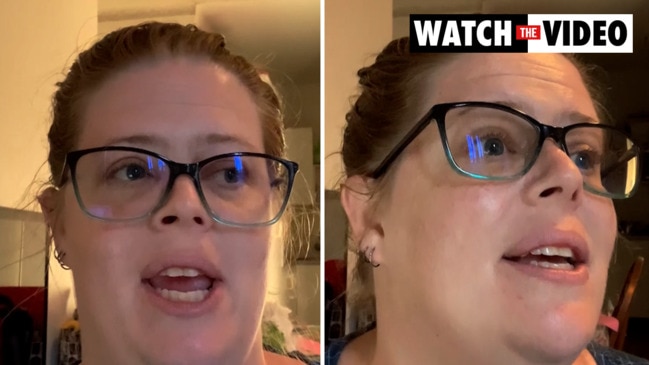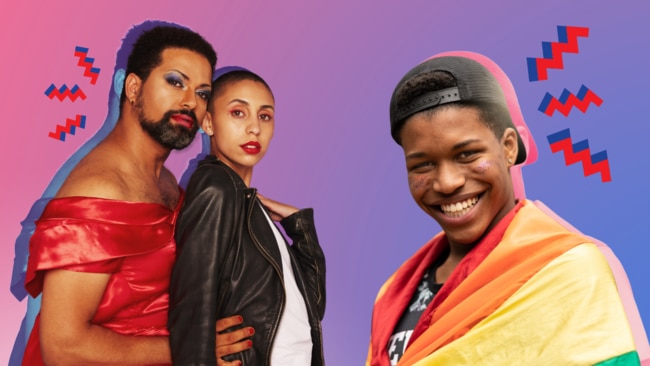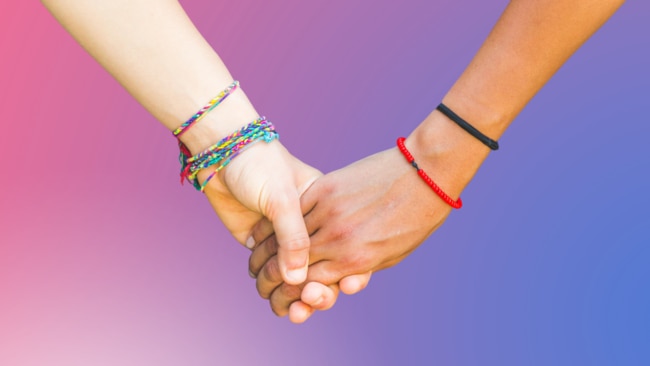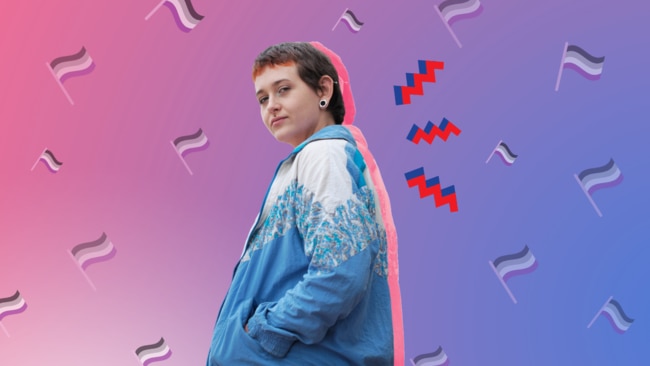Do asexuals have sex? Common myths about asexuality busted
Here’s everything you need to know about being asexual, including the common myths about asexuality.

Sex
Don't miss out on the headlines from Sex. Followed categories will be added to My News.
“I don’t understand how people find it so difficult to wrap their head around my sexuality.”
Gemma identifies as a biromantic asexual, but she says it’s an “ongoing process”.
It’s a sexuality that isn’t talked about enough but it’s a key part of the LGBTQIA+ acronym. Asexuality is among the terms covered in the LGBTQIA+ acronym, alongside ‘aromantic’ and ‘agender’.
So what exactly is ‘asexuality?’ Gemma, who is a member of the Australian Asexuals team, is busting the common myths about asexuality, including if asexual people have sex.
So, what is ‘asexuality?’
Asexual people, also known as aces, experiences little to no sexual attraction. These experiences fall on a spectrum, from sex-repulsed aces to sex-indifferent aces.
A wide variety of identities fall under the umbrella of asexuality, including graysexual (they experience sexual attraction rarely and/or at a low intensity), demisexual (they only feel sexually attracted to someone when they have an emotional bond with the person) and reciprocal (they don’t experience sexual attraction unless it’s reciprocated).
A biromantic person might not be interested in having sex with individuals they’re interested in. Instead, they focus on the emotional aspect or are interested in developing a romantic relationship with people of both similar and different genders from her own.

What are the common misconceptions about asexuality?
“Asexuals don’t want relationships.”
“They’re prudes.”
“You’re not asexual. You’ve just had a bad sexual experience.”
“But what made you become asexual?”
These are just some of the ignorant comments Gemma has heard over the years about her sexual orientation.
“It’s annoying, but I get that people are trying to understand why and because it’s something different and something a bit out there from their own experiences. You know, in contrast to their own life,” she told news.com.au.
“People are often trying to go ‘So, is it because of this or is it because of that?’ without actually realising that just like people can be gay, just like people can be bi, some people are ace.”

Are asexuals comfortable talking about sex?
“It really is a varied experience,” Gemma says. And it varies from ace-to-ace. Some aces are OK with talking about sex. Others don’t feel comfortable talking about sex and or relationships at all.
In fact, when it comes to talking about sex and consent, asexual people are more well-versed than you might think.
“The amount of times that I’ve talked about it [sex and consent] with aces and have had to work out, ‘Is it romantic attraction or is it just platonic?’” Gemma says.
“It’s a good thing that I have friends that are ace. I have a good number of friends that are ace. And so I don’t have to have conversations with my friends about sex.”
Gemma says aces are very good at talking in theory about sex and about consent and “about what kind of relationships they do want.”
“You know, it’s not just ‘ew sex’, like thinking that it’s icky and gross.”

How important is sex to asexuals?
At the end of the day, it comes down to the individual’s preference. For Gemma, sex is not at all important. In fact, it’s “off the table” in most circumstances.
“I’ve had people try to bargain sex out of me. And I’m just never doing that again. It’s not
worth my sanity. I end up feeling guilty and it’s just sh*t,” she said.
“Sex is not important to me at all. And quite frankly, I’d be happy to never have it again. I guess it’s not important to me.
“If I was trying to start a relationship, I would be making it abundantly clear that sex was not on the table. And if that was something that was important to them, then it wasn’t going to work.”
How can asexuals feel better represented?
Including the ‘A’ in the LGBTQIA+ acronym is probably one of the most important things people can do, Gemma says.
“We have representation, but it’s more the representation that a passer-by is going to see so eventually asexuality becomes as well-known a term as homosexual, transgender or intersex.
International Asexuality Day is April 6, which is a worldwide event dedicated to asexual advocacy, celebration, and education. There’s also Ace Week, which falls between October 23-29.
“We’d really like it to be included in everybody’s pride calendars, just like other days for different orientations and gender representations are,” Gemma says.
“People forget that if they are straight or if they are gay, they have a gender they’re not sexually attracted to. They seem to forget that when they talk to aces.
“So I don’t understand why people find asexuality so hard to wrap their head around.”
Originally published as Do asexuals have sex? Common myths about asexuality busted



